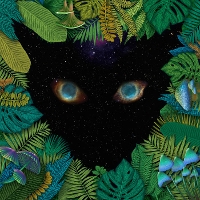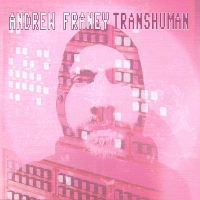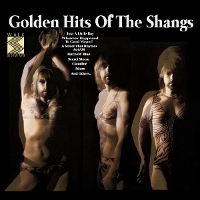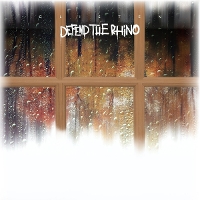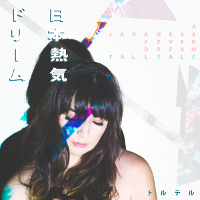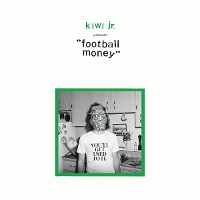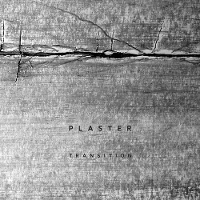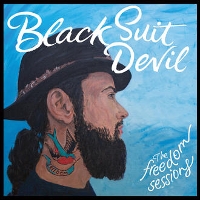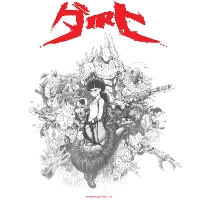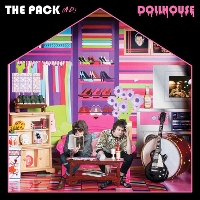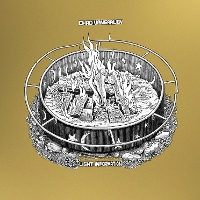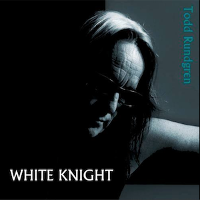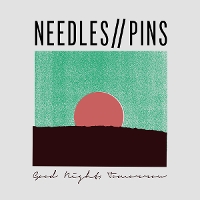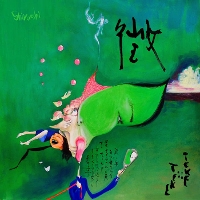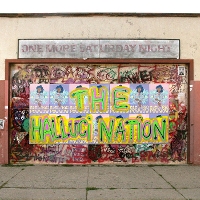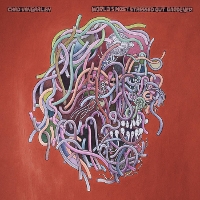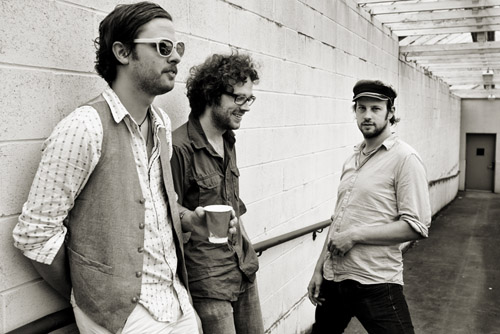
Plants and Animals: Warren, Woody and Nic
Far From The End of That for Plants and Animals
A Conversation with Guitarist Nicolas Basque.
The End of That, Plants and Animals’ third full-length album, exhibits the depth and instrumental swells of a band that has grown into their own sound and style. The release balances the stripped down hand clapping of their 2008 Polaris Prize nominated debut Parc Avenue with the sweeping instrumentals of 2010’s La La Land. Earshot had a change to talk with guitarist Nicolas Basque (Nic) at the beginning of the group’s current tour to discuss the band’s formation, recording music at La Frette Studios, and touring
Earshot: Your band mates are from out east, but what drew you all together and why did the band settle in Montreal?
Nic: Warren [Warren Spicer] and Woody [Matthew Woodley], who are the two other guys from Halifax, moved to Montreal quite a long time ago, I think I ’96 or ’97. They were pretty young – they just came to Montreal because they liked the city. Then they went to university there at Concordia, and then that’s where I met Warren from the band in a composition class. We were students in electroacoustic music.
 I think that's my favourite piece of gear now � this $200 Kalamazoo amp, it is like a cardboard box
I think that's my favourite piece of gear now � this $200 Kalamazoo amp, it is like a cardboard box
 There was a day we could bring a record we liked…I brought a John Fahey record called Womblife. John Fahey is a folk guy but he did this weird record with Jim O’Rourke. Warren was a big Jim O’Rourke fan so we talked after class and he gave me some suggestions on records to listen to and at that point we started making music with each other for school.
There was a day we could bring a record we liked…I brought a John Fahey record called Womblife. John Fahey is a folk guy but he did this weird record with Jim O’Rourke. Warren was a big Jim O’Rourke fan so we talked after class and he gave me some suggestions on records to listen to and at that point we started making music with each other for school.
I think Woody was away in South America traveling for about a year and Warren kept telling me about a drummer who was amazing. When Woody came back we started playing music at Concordia in the basement just for fun. I started rehearsing at Warren’s apartment, and we played shows in Montreal. There were so many bands coming through town at that point, and a lot of venues were opening; Casa del Popolo and Bobard’s, so we’d just play once or twice every month opening for good bands. We didn’t even have a song, we’d just show up and improvise. So that’s how we started, not really knowing we had a band on our hands but by getting to know each other – playing music and becoming friends.
Earshot:
I understand that the end of that was recorded at a home studio in France [at the renowned La Frette studio]. How would you describe this experience and how did that come about.
Nic: It’s a studio that’s in a house but it’s a world-class studio. It is really well equipped. Instead of walking in a studio with a cold environment, it is an old mansion all beaten up so we went there the first time during La La Land. The owner of the studio had seen us play in Montreal, and he really liked our band so he invited us over [to record].… we really liked the experience.
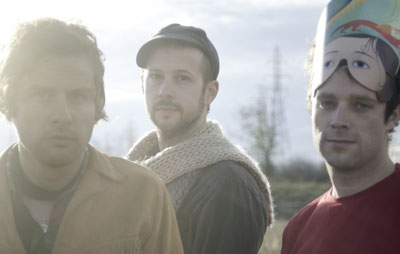
So we played all the songs off the floor with Warren
singing the vocals live - that was something we never really did before.
When we started talking about making The End of That, we were thinking of different studios, just doing a condensed two weeks somewhere or something like that. When we went on tour in Europe we slept in that studio - which is also a house - and when we were there we were like, ‘well, we have to find a way to record,’ and the equipment was already there so we made it happen. We had a tour, then after that we stayed there two weeks and a weekend, two to four days, go back home, come back on the other side of the ocean, so yes we made it work. It is an incredible place - really inspiring - and the engineer there really helped us a lot with the recording.
Earshot: The production on the album is really interesting, a song such as “Lightshow” is particularly fuzzy, was there a particular feel that the band was trying to go for in terms of the production on this album?
Nic:
We wanted to keep it simple, and to also play together when recording. So we played all the songs off the floor with Warren singing the vocals live - that was something we never really did before. I think there is a sense of performance on the recording that captured the songs well. [We made] sure that everybody sounds good; but we wanted to capture a sense of performance so that the sum of everything would feel like a band [while hearing] the individuals through the recording. That was maybe the direction we had with the production – simple…we might have added backup vocals and stuff like that but we wanted to arrange the songs so that the rearrangements seemed simple, but there was a lot of thought behind it. We wanted a sense of everybody playing together and that was the direction we had.
Earshot: What is the songwriting process like? How do you all compose a song?
Nic: Most of the time Warren who sings in the band will come up, and he brings some type of song or a demo in the rehearsal space. Then we work on it all together and deconstruct it or keep it the same or play around with the arrangement, add guitar or something. There is a collective effort; but it often starts with a part from Warren and on this recording also some of the ideas I had in the rehearsal space…I’d track some stuff and send it to Warren to see what he’d think and we’d bring it back and then bring it to Woody and play around with it. It depends on the song, but [as far as lyrics go] all of them are written by Warren, while we do get some input on it. Woody used to do a lot of writing for a weekly in Montreal, The Mirror so he’s good with words and makes sure that everything that Warren wanted to [convey] with his lyrics are there. The lyrics are all Warren’s stories.
 I always find it strange when we're driving for eight hours and then there is a city with tons of interesting music. So the prairies always have a good energy to it, I find
I always find it strange when we're driving for eight hours and then there is a city with tons of interesting music. So the prairies always have a good energy to it, I find

Earshot: Do you have a favourite piece of gear at the moment?
Nic: In terms of gear I was brought to a [blog] called Daytrotter. They are near Chicago and have bands who come and track [record] them and put them online on a blog, it’s really well done. We went there last summer after a Chicago show and we did a special with them. They had a wicked [Fender] Princeton amp from the fifties that I was really pumped about. I tried it but it didn’t work at all. So I found this weird amp, from the sixties. It is not worth anything, its mostly used by harmonica players but it sounded amazing and after I heard the recording I thought ‘Wow, this amp really has the character that goes well with my guitar,’ so I found one on e-bay and its all over the new record. Its like I found the sound I was always looking for. It works really well live; it works in the studio. I think that’s my favourite piece of gear now – this $200 Kalamazoo amp, it is like a cardboard box.
Earshot: In terms of the songs on the album, I know this is a hard question, but do you have a favourite song or one that is particularly fun to play live?
Nic: I think “Runaway” is really, really fun to play live, because it is like being on a big boat, floating…its what I imagine it is like to play with an orchestra, its moves all over the place and its kind of an elastic tempo, and you have to listen to everyone and not overplay so the vocals can pass through but also have a lot of energy.
One that I really liked recording was “H. C.” ‘cause it is this really small song. It was really long but it kind of made more sense to keep it under a minute. It was really fun to record because we tracked it on a special tape machine called a J37. It’s the tape machine The Beatles used when they made Revolver and Rubber Soul; and those recordings just have four tracks so the engineer at La Frette really mastered the sound. It was the last song we tracked for The End of That and I think at that point we really had our sound down. We made one track with the drums with Woody, Warren one track with the vocals, one track for the guitar, and we’re playing the classical guitar but it sounds like double bass. We had a good time playing it and its super simple but I was playing classical guitar and it had no dots on it so I kept fucking up the switch so something that should take ten seconds took twenty takes ‘cause of me. Anyways, it was really fun to track that song and I think it’s the song that sounds the best on the recording. Its super simple but it has this massive sound. I really like the production of that song - or the absence of production.
Earshot:
What city are you most keen to play on your Canadian tour?
Nic:
Montreal is always special ‘cause it’s home and all our friends get to come and all that stuff so that’s like the fun home show its always a good time. I also really like to play outside of Montreal ‘cause I don’t feel the same as playing when all my friends are in the room; there is something really nice about feeling totally anonymous somewhere. I also like playing the prairies ‘cause its sort of a mystic place for me. When I was a kid I’ve never been past Toronto before being in a band, I had never been out in eastern Canada. I always find it strange when we’re driving for eight hours and then there is a city with tons of interesting music. So the prairies always have a good energy to it, I find.
Earshot: … One amazing thing about this country is how big it is and how different it is because the prairies are totally different from Quebec - which are different from the Maritimes which are definitely different from the west coast.
Nic:
It’s so dramatic. I find it so dramatic a drive when we get to Calgary and we see the wall of the Rockies and its great. It’s a great country, there is so much diversity.
Right now we are really looking towards the live shows and we’re really excited to play for people. I think we’ve practiced a lot and I feel like at this point the only way we can get better is by confronting a crowd, and playing for a crowd and feeling each other and the crowd, so I think that’s where my mind is. Is getting better for the concert so for the record, all I want to do now is make another one, but there is a weird feeling that once its done you want to play it for the people but in terms of writing music, you want to write more. I feel like we found some kind of path with that record that works well and I think we’re going to continue in that direction and try to push it more so hopefully we will release a record soon.
Earshot: If you could describe the album The End of That in a single word, what would that be?
Nic: Authentic.
comments powered by Disqus
